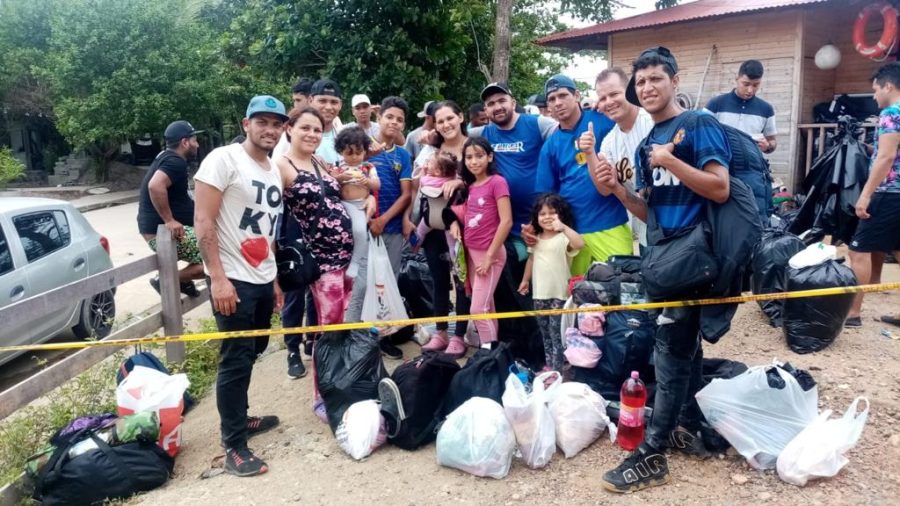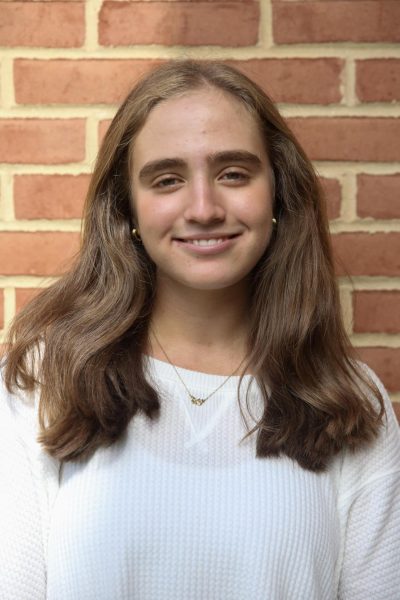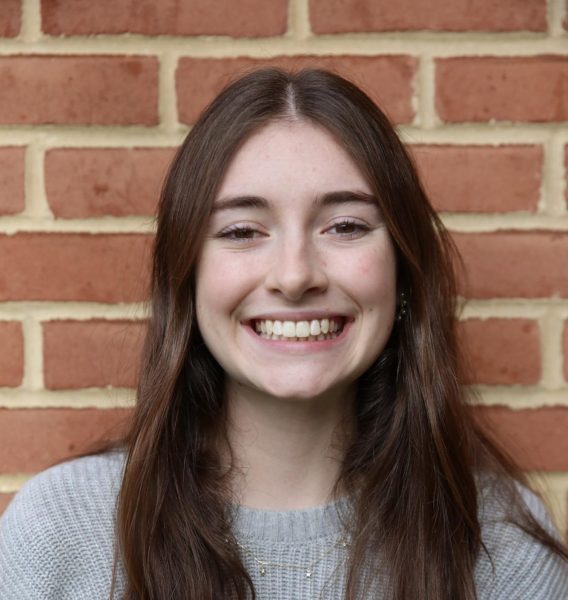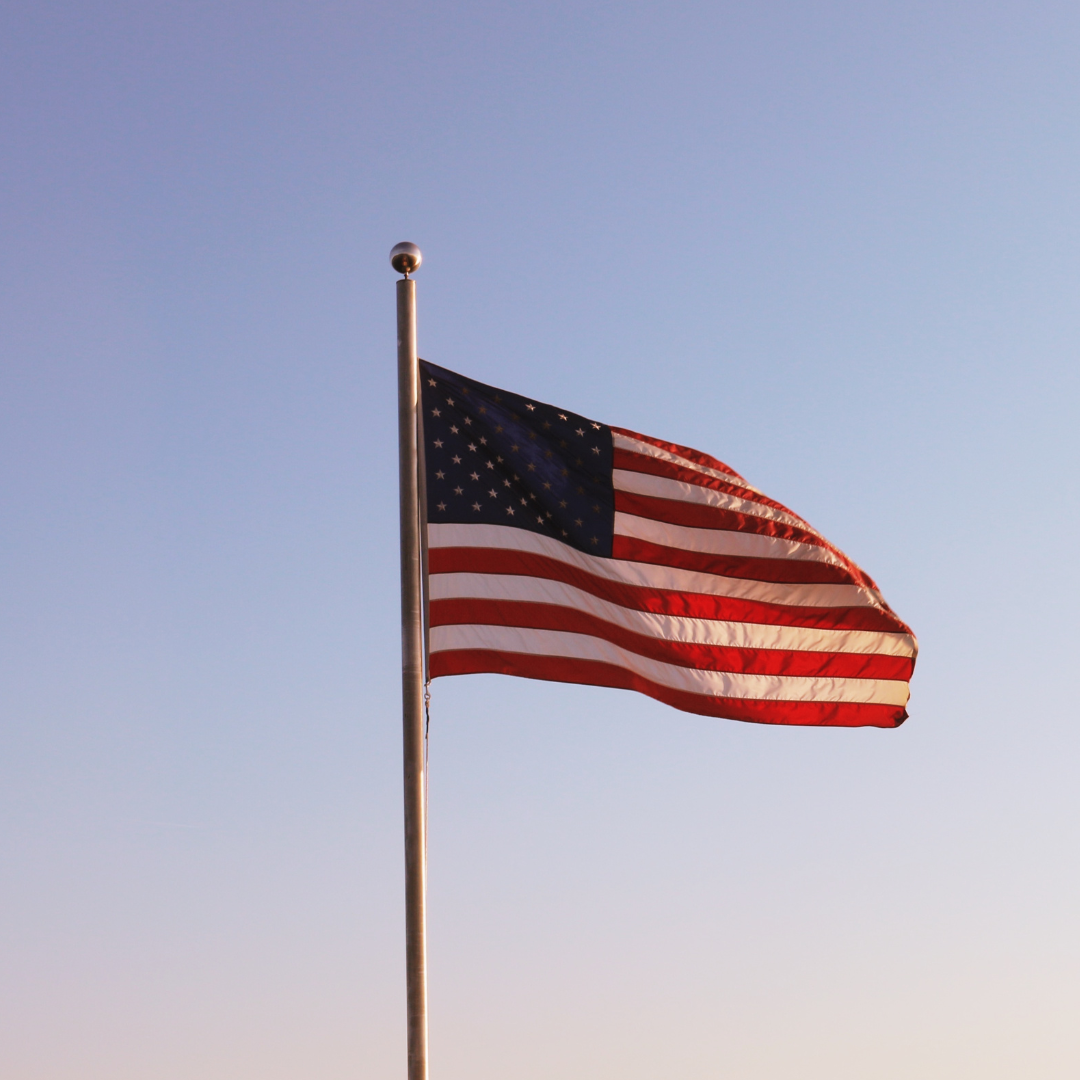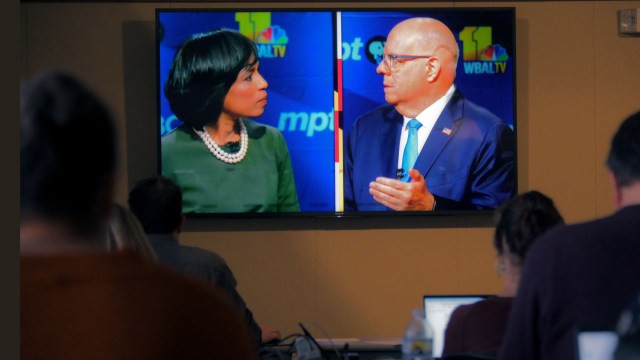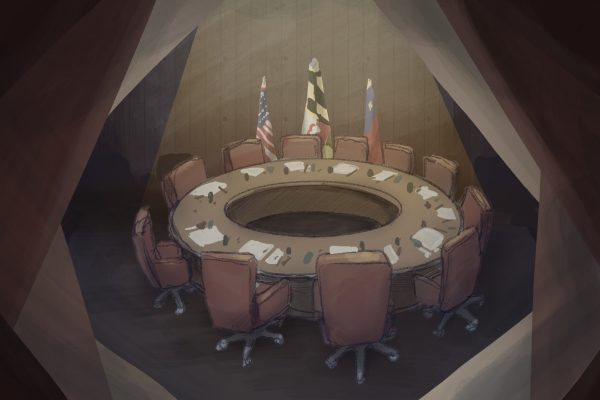A dangerous journey to a better life: how a Venezuelan family trekked to D.C.
A Venezuelan family stops at a refugee camp on their way to the U.S.
May 12, 2023
Content Warning: This story contains language that pertains to sexual assault.
In 2022, a group of men from the Mexican cartel, equipped at the Texas border with guns and grenades, ambushed and kidnapped a Venezuelan family of immigrants seeking refuge in America. After a 3,000-mile trek through six countries, crossing rapids, steep mountains and the deadly Darien jungle, two-year-old Karianna clung to her mother Karolay’s worn-out shirt as the unknown, “scary” men demanded $4,500 to let her family go. Standing just a few miles from safety, the family felt their lifelong dream of reaching the United States slipping away.
Years of economic, political and humanitarian corruption including hyperinflation, violence and food and medicine shortages have made living in Venezuela hopeless for many. Since 2013, Venezuelans have lived under the authoritarian regime of President Nicolas Maduro. His policies have cut money from education and destroyed both the oil industry and the healthcare system, said Matthew Burwick, a volunteer who devotes his life to Venezuelan humanitarian aid.
“It’s not just about the number of people, it’s about the level of suffering,” Burwick said. “This dictatorship has caused the largest migration crisis in the history of the continent. People are kidnapped, tortured, killed or murdered and most have no education, no work. Nothing in their country is their own.”
According to the UN Refugee Agency, more than seven million Venezuelans have fled their country to escape the authoritarian rule and power of Maduro since he first took office. In 2022, the Gutierrez family became a part of this statistic.
The lack of opportunities and basic human needs in Venezuela drove Danny Gutierrez to migrate his family to the U.S. despite the risks, he said.
“When we left our country, the situation in Venezuela was very difficult,” Danny said. “It got to where we had trouble getting food for our family.”
Little did they know that, after trekking 3,000 miles, their final destination would be the capital of the U.S., Washington D.C. Last September, Greg Abbott, the governor of Texas, bussed hundreds of immigrants to D.C. in what critics decried as a “political stunt.” Abbott wanted to bring the border crisis to sanctuary cities, he said, to communities that discourage law enforcement from investigating individuals’ immigration status and don’t often deal with large surges of immigrants. Among those sent to D.C. was the Gutierrez family.
After escaping Venezuela in 2017, Danny settled in Ecuador with his then-pregnant wife, Karolay, son Kendri (13) and two daughters Danneilys (5) and Karianna (2). On May 13, 2022, the Guiterrez family and Jactino, Danny’s brother who had been living in Colombia, set off to finish their journey to the United States with the clothing on their backs, flashlights, a cell phone and whatever food they could carry.
“We were looking for the best possible life, a future where our girls had insurance and could go to school,” Danny said. “Since we were young, it’s always been a dream to work in the U.S. to provide for our family.”
Ecuador, where the family was living before setting off to the U.S., a country with high levels of violent crime and civil unrest, became unbearable for the Gutierrez family, they said. After hearing about life in the U.S., the family decided that leaving Ecuador and embarking on the journey to the U.S. was the best option for their children.
Danny’s former colleague from Venezuela had previously made the journey to America and offered to help him and his family once they settled in the U.S. However, once they arrived in Mexico City, Danny received a message saying that their family no longer had a place to stay.
“We were so close, we had no choice but to continue,” Danny said. “We knew we couldn’t go back after everything we went through.”
The first obstacle in the Gutierrezes’ journey was the infamous Darien gap — the only crossing between South and Central America. The family journeyed through 60 miles of dense rainforest, dangerous wildlife, explosive rapids, violent criminal groups and fatal diseases.
Over the years, the number of migrants crossing the Darien in a desperate search for work and safety has skyrocketed. According to the UN Refugee Agency, in February 2022, the number of migrants venturing through the treacherous forest nearly surpassed the total number of crossings in all of 2021. From January to October 2022, the number of crossings totaled 248,284 compared to 133,726 total crossings in 2021, the agency reported.
The family of six, including pregnant Karolay, chose the “Carreto route” — the only established route to cross the Darien that wasn’t run by narco-traffickers. The Gutierrez family paid guides spread throughout the Carreto route to help them navigate along their trek and provide them with food, water and tents.
The Gutierrez family had a uniquely positive experience with some of the guides in the Darien — some even offering to help carry their youngest daughters. However, not all migrants are as lucky. These informal guides will accept whatever money the migrants have to give them, but with every guide, there exists uncertainty about their intentions, Danny said. Migrants constantly need to be attentive to kidnappings, abuse and theft.
Crossing at least three rivers daily, Danny, Karolay and Jacinto joined his brother’s family and carried Dannielys and Karianna on their backs throughout the dangerous trek. It took five days of climbing mud-covered mountains, crossing rapid rivers and walking past make-shift graves of deceased migrants to make it through the jungle. 100 miles of walking in humid, wet temperatures left the family with splitting feet and no toenails.
Climbing each mountain required extreme physical and mental endurance. Even upon reaching the top, fellow migrants collapsed from heart attacks, leaving their families no choice but to cover their bodies in leaves and continue through the Darien. The Gutierrez family recalled one man who threw his wife into a river to die because he could no longer carry her injured body. Upon reaching a refugee camp in the Darien, police arrested him after his wife was rescued from the river, still alive.
The Gutierrez family experienced their own share of sickness, including digestive issues and chest inflammation. Inclement weather also impacted their trek, with floods due to heavy rain causing delays in their journey, so the family waited in their tents until the water levels were safe to cross as advised by guides. Linked arm-in-arm, Danny and Karolay attempted to get their family across one of the fastest rapids — however, just before crossing to the other side, Karolay slipped on a rock but thankfully, linked to her husband, avoided drowning her and her unborn child.
“Crossing the Darien was very hard, the rapids took a lot of lives, one wrong step and they were gone,” Danny said. “The last two days in the Darien, we were left with no food, again with no option but to continue.”
Each night the restless family heard desperate screams for help as pumas, snakes and tigers killed children and adults alike, leaving families distraught but with no option other than to continue. Throughout the journey, the family heard horrific accounts of rape, assault and robberies.
“There were times when I questioned our decision to keep going, but I just kept thinking about my daughters and their futures,” Karolay said.
Throughout the Darien Gap, there are refugee camps located in small villages which are set as markers for migrants making the journey. From pueblo to pueblo, the family met and formed relationships with people in similar circumstances. In the forest, a lovely couple made coffee to share with others, but the Gutierrezs’ later learned the couple had been swept away in the rapids, Danny said.
“She slipped and fell into the river, her husband jumped in to save her but he couldn’t, and they both went,” Danny said. “They traveled all five countries just to die crossing the last river.”
On their final day of trekking through the Darien, another couple traveling alongside the family died from a snake bite when they leaned up against a banana tree just a few miles from the exit.
When the Gutierrez family finally left the Darrien behind and crossed into Panama, organizations like the United Nations High Commissioner for Refugees provided them with fresh sets of clothing. From there, the family took buses from city to city, spending nights in local hotels with no more than four hours of sleep each night, slowly inching their way through Central America toward the U.S.
At the Nicaragua-Honduras border, a $180 entrance fee was required. The Gutierrez family didn’t have enough money, so they rallied together with other migrants to cross the border. Strangers offered them help along the way, occasionally providing them with overnight shelter. After conquering Central America, the Gutierrez family had one last obstacle to overcome: Mexico.
Many migrants describe their experience in Mexico as the most horrifying part of their journey to the U.S., Burwick said.
“What I hear about Mexico is worse than the stories of crossing the Darien Gap,” Burwick said. “It’s really horrible, and so many of the crimes, violations, abuse, kidnappings and disappearances happen in Mexico.”
Burwick met one woman who arrived in D.C. after crossing through Mexico and confided in Burwick that she had been sexually assaulted and was having a difficult time managing.
“Very cruel things happen there,” Burwick said.
The Gutierrez family spent an entire day under a Mexican cartel’s control. Enforcers bussed them and other migrants around the city. Extorted, the Gutierrezes repeatedly said they had no money to give, so they were taken into an unknown building. There, Danny slipped away to contact 911 — not ideal given the well known ties between Mexican police and cartel members, he said, but a risk worth taking. They said they’d send a car. Ultimately, at the end of the night, Danny was able to negotiate their release; the police never arrived.
After crossing six countries, the dreams that Danny and his younger brother aspired to achieve as young kids finally became a reality.
“We didn’t even realize we were in the U.S. until I checked Google Maps and saw we were right at the border — it was the greatest relief,” Jacinto said. “After having gone through everything, especially after being held in Mexico, we couldn’t believe we were here.”
Once the Gutierrez family arrived in Texas, U.S. border patrol took Jacinto, put him in the back of a caravan truck, and brought him to a detention center where they separated him from his family for questioning. They told Jacinto and other migrants to empty their pockets and take off their shoes while they registered them as immigrants seeking asylum. Border patrols asked Jacinto for his medical data — including height, weight and other standard procedure stats — while he stayed in the detention center overnight with food, water and shelter.
After Jacinto mentioned he knew someone in Orlando — the same friend who said he couldn’t stay with him — the officers decided to send him to Florida. They transferred Jacinto to a nearby church that rendered aid to immigrants, where he reunited with Danny and his family. They wished each other the best of luck before Jacinto got in line for Florida, while his family boarded a free bus to Washington D.C. Prompted for money, though, Jacinto quickly realized he had no way to pay for a plane ticket to Florida despite the order, and he frantically ran to board the free bus to D.C.
“We were ready to wish each other the best of luck and say goodbye,” Jacinto said. “I wasn’t planning on going to D.C.”
The Gutierrez family spent three days on the bus crowded with fellow immigrants. On June 19, 2022, at approximately 8 a.m., the family arrived at Union Station in D.C. — a 30-minute drive from Whitman. The Gutierrez family felt excited but unsure of what lay ahead.
As they walked off the bus, Burwick stood alongside other non-profit organizations greeting the families with open arms.
“They were in emotional shock and had no idea where they were when they arrived,” Burwick said. “The first encounter is always very heavy and intense, but the moment they realized I was Venezuelan, they were so happy and we immediately became brothers and sisters.”
Some families wandered from the site hoping to find food and shelter, while the Gutierrez family stayed at Union Station until 11 p.m. waiting for a space to become available for them at a nearby shelter. Since April, Abbot has continued to bus immigrants who crossed the Texas border — the majority being Venezuelan — in rough conditions without food, shelter or other basic necessities.
D.C. was a foreign environment for the family because of the language barrier and difference in climate from their home country. However, when migrants are welcomed by humanitarians like Burwick, they often become more comfortable in sharing their stories, Burwick and the Gutierrezes said.
After arriving at Union Station, local organization leaders help relocate migrants to shelters around the area. Burwick placed the Gutierrezes in a family shelter in Rockville, Maryland, where they stayed for roughly four months before moving to a small apartment complex.
***
When we walked into their new residence, a one-bedroom apartment with a small kitchen and bathroom, Karianna and Dannielys immediately greeted us with laughter and hugs. As we stepped inside, Karolay fed one-month-old Jacot while the eldest son Kendri scrolled through videos on his dad’s phone. After graciously inviting us into their apartment, the family sat down in a circle, ready to tell us their story.
The Gutierrezes are actively seeking asylum, meaning they left their country due to factors harming their family. Immigration and Customs Enforcement has temporarily frozen their deportation until their court date in May 2023. Often, immigrants in this situation find informal ways of working to support their families until they can gain formal work permits.
Specifically in the DMV, Venezuelan immigrants bussed from the border endure their first-ever winter in freezing temperatures, as Venezuela has no winter climate. While the Gutierrez family is not done with their immigration journey, they’ve come a long way and survived a quest many set out to complete but never do — for that they are thankful, they said.
Danny and Karolay look forward to experiencing snow and watching their kids grow up in the U.S. Karolay gave birth to a new baby Jacot in late October, officially making him a U.S. citizen — an important symbol to the Gutierrez family, they said. Having dreamed of experiencing freedom and opportunity in the U.S., their youngest son’s rights and freedom are protected by the law. Kendri just started eighth grade and Dannieyls entered Kindergarten, both hoping to continue expanding their education.
“None of us are perfect, we all make mistakes,” Danny said. “Now that we’re here we want to be the best people we can be with a new life and an opportunity to start fresh. Our journey has shown us that nothing is impossible.”




